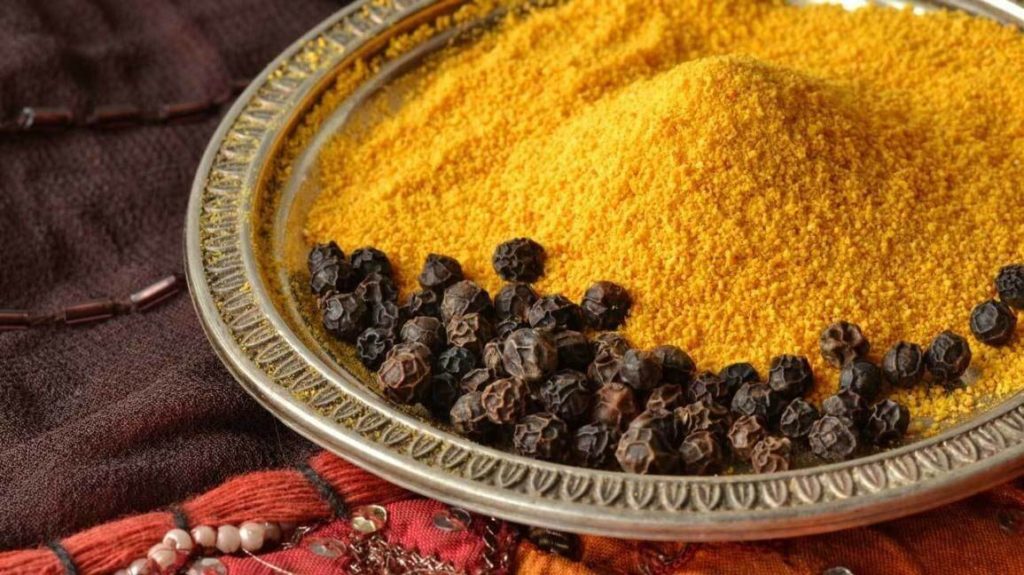
Turmeric, also known as the golden spice
Turmeric grows in Asia and Central America. It gives curry its yellow color and has been used in traditional Indian medicine for thousands of years to treat a variety of ailments. Research on turmeric supports its use and shows that it may benefit your health. But the combination of turmeric with black pepper greatly enhances this effect. This article looks at the potential health benefits of combining turmeric and black pepper.
Turmeric and its key active ingredients
Studies conducted in recent years have confirmed that turmeric has healing properties. Black pepper can also have health benefits, although most people think of it as a seasoning. Both turmeric and black pepper have key active ingredients that contribute to their anti-inflammatory, antioxidant, and disease-fighting qualities.
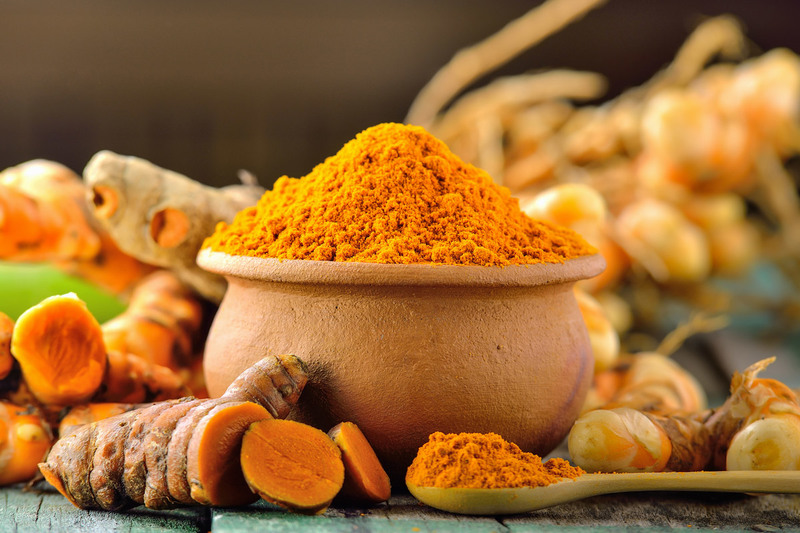
Turmeric and Curcumin
The main compounds in turmeric are called curcuminoids. Curcumin itself is the most active ingredient and appears to be the most important substance. As a polyphenol, curcumin has several health benefits. It is a strong antioxidant with anti-inflammatory, antibacterial, and antifungal properties. However, one of the biggest drawbacks of curcumin is that it is poorly absorbed by the body.
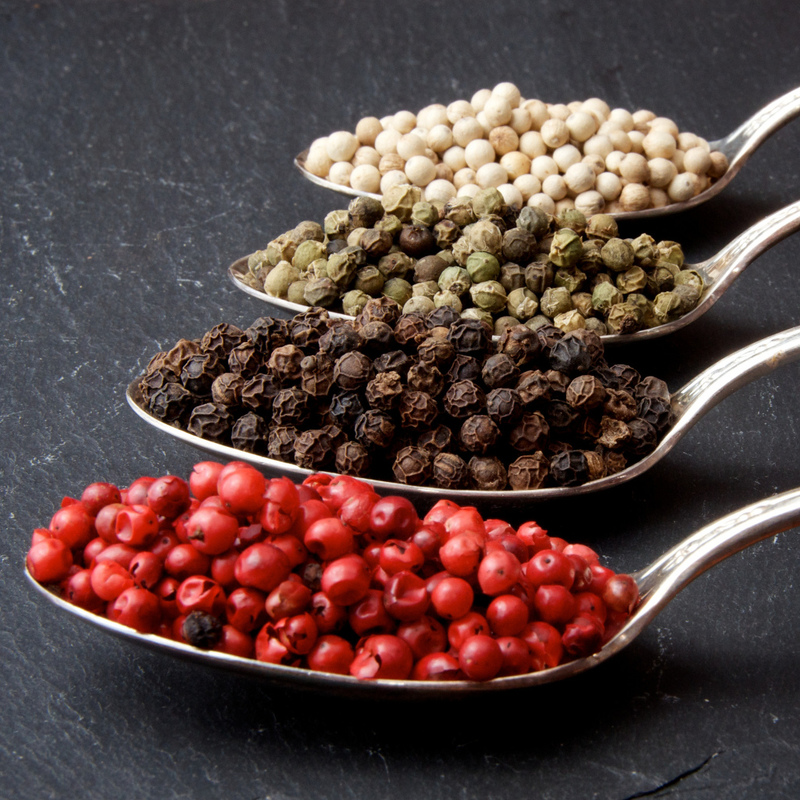
Piperine in black pepper
Black pepper contains the biologically active compound piperine, which is an alkaloid such as capsaicin, the active ingredient found in chili powder and cayenne pepper. Experience shows that piperine helps to reduce nausea, headaches, and poor digestion, and also has anti-inflammatory properties. However, the most significant benefit may be its ability to increase the absorption of curcumin.
Conclusion: Curcumin in turmeric and piperine in black pepper improve health due to their anti-inflammatory, antioxidant, and disease-fighting qualities.
Piperine improves the absorption of curcumin
Unfortunately, the curcumin in turmeric is poorly absorbed into the bloodstream. As a result, you may miss out on its health benefits. However, adding black pepper to turmeric may help. Studies confirm that the combination of piperine in black pepper with curcumin in turmeric improves the absorption of curcumin by up to 2000%. One study found that adding 20 mg of piperine to 2 g of curcumin significantly increased its absorption. There are currently two theories about how this works. First, piperine facilitates the passage of curcumin through the intestinal wall into the bloodstream. Secondly, it can slow down the breakdown of curcumin in the liver, increasing its level in the blood. As a result, combining curcumin with piperine increases its potential health benefits.
Conclusion: The piperine found in black pepper improves the absorption of curcumin, making it more bio-available for use by your body.
Safety and dosage
Curcumin and piperine are generally considered safe. There are no official recommendations for their use, and the maximum allowable consumption is also not defined. In Indian culture, turmeric and black pepper are commonly consumed in tea, often in combination with olive oil, coconut oil, honey, and ginger. Since curcumin is fat-soluble, consuming it with fat can also improve its absorption. However, to fully take advantage of the medicinal benefits of curcumin, it is best consumed in the form of supplements in combination with piperine.
Conclusion: Turmeric and black pepper are considered safe, and no serious side effects have been reported. They can be added to food and beverages, and these supplements usually provide great benefits.
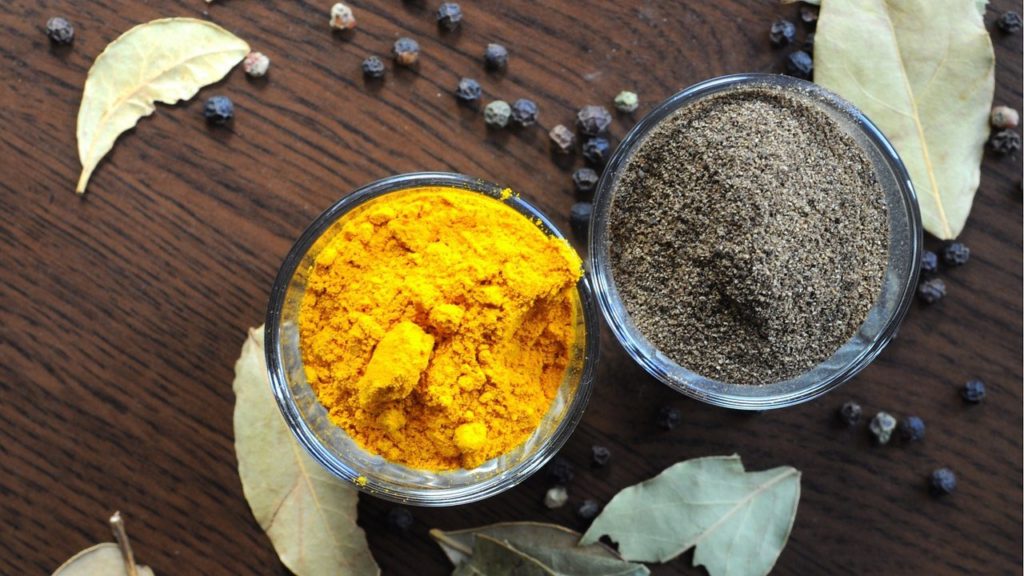
Only in the last few years have scientists discovered the amazing properties of turmeric. The spice is good for our health and provides the perfect start to the day for the whole body.
There are 8 reasons for this:
1. Turmeric fights inflammation-almost as effectively as some medications.
2. It protects your brain. In one experiment, turmeric prevented the deposition of certain protein complexes in the brain that have been linked to Alzheimer’s disease.
3. Just one gram of turmeric is enough to optimize working memory for six hours. This discovery was made by scientists from Monash University in Australia.
4. Spice can prevent cancer. Laboratory tests have shown that turmeric has anti-cancer properties.
5. Turmeric improves digestion. For example, spice relieves gas and bloating.
6. Curcumin supports the liver and stimulates the release of more bile acids. They bind to dietary fats and make them easily digestible. In addition, the spice reduces gas formation and bloating.
7. Turmeric protects the heart. A study by the University of Tsukuba in Japan shows that curcumin is just as effective for the health of our blood vessels as an hour of exercise. Natural turmeric dyes are antioxidants that protect cells.
8. Turmeric can also help treat depression. This is evidenced by a study conducted in India in 2013.
Turmeric belongs to the ginger family, grows in tropical regions of Asia. The underground part of the perennial is used, which is similar to ginger but has an intense yellow color. Therefore, it is called yellow corn. The taste is described as “moderately spicy with a slight earthy-bitter note”.
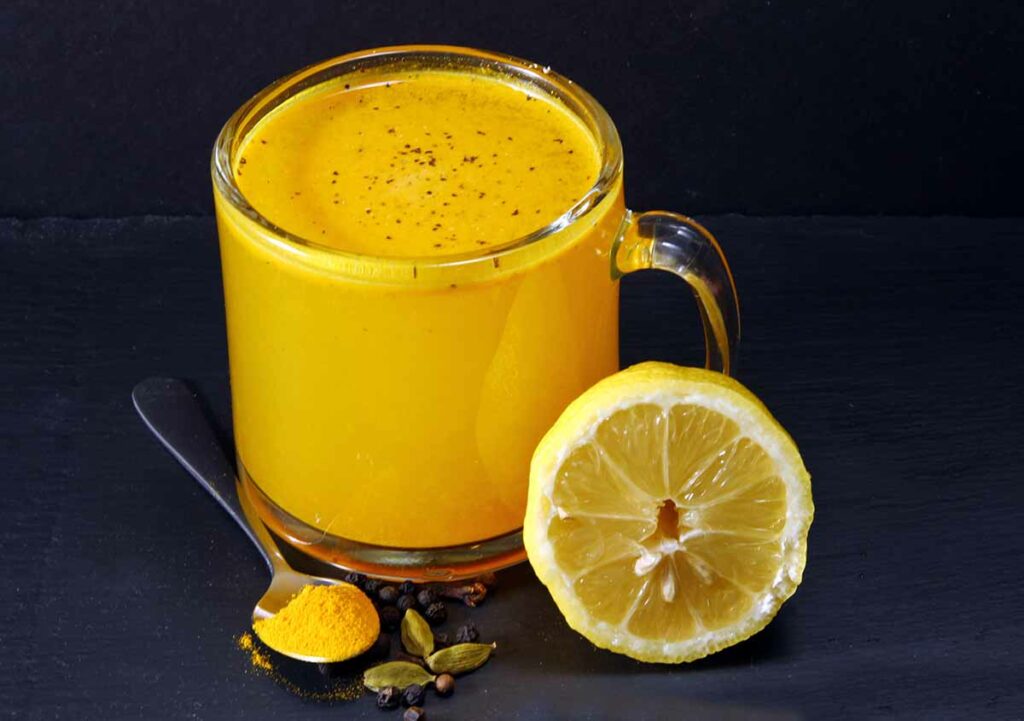
How to make a drink with turmeric and lemon
In order to fully enjoy all the incredible benefits of this drink, you will need to allocate only 15 minutes daily before breakfast.
Ingredients:
* Lemon juice (250 ml)
* Turmeric powder (half teaspoon)
* Black pepper (2 g)
* Red Cayenne pepper (2 g)
It is necessary to drink one glass of the drink every morning on an empty stomach. For the desired result, it is necessary to take the remedy with turmeric and lemon for one month.
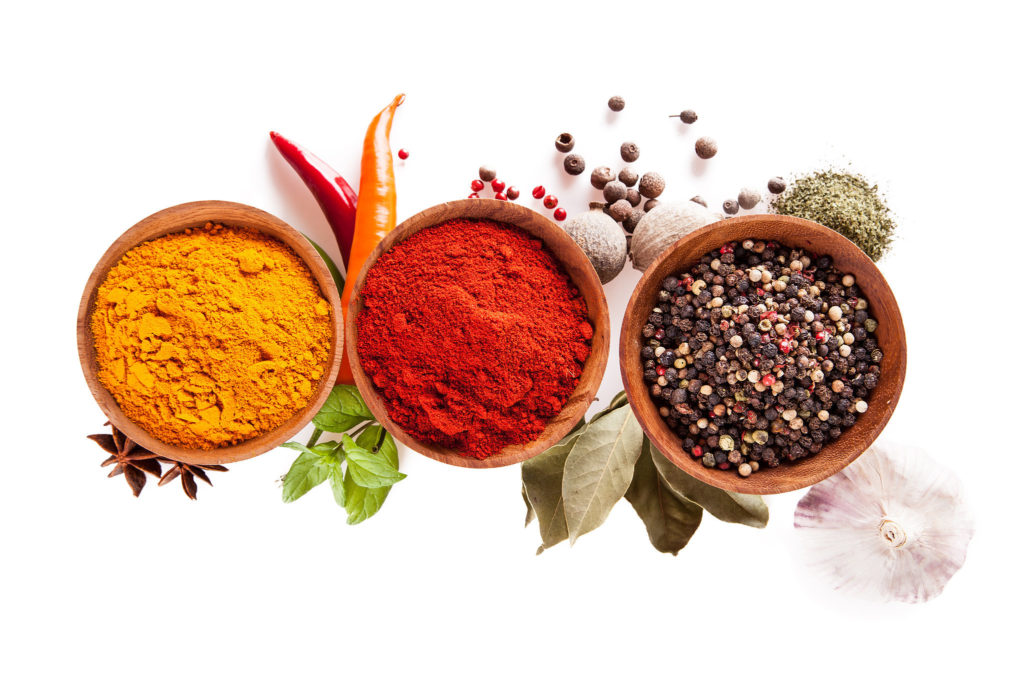
Contraindications
* First of all, it is necessary to pay attention that turmeric and natural remedies based on it are contraindicated for people suffering from liver disorders.
* If you are still taking certain medications, it is better to consult your doctor first to determine whether you can combine them with turmeric and lemon.
The material is prepared by specialists for informational purposes only. It should not be used as a guide for the treatment of diseases, and it cannot replace professional medical advice, diagnosis, or treatment. In case of illness or any symptoms, you should not self-medicate and should always consult a doctor.


